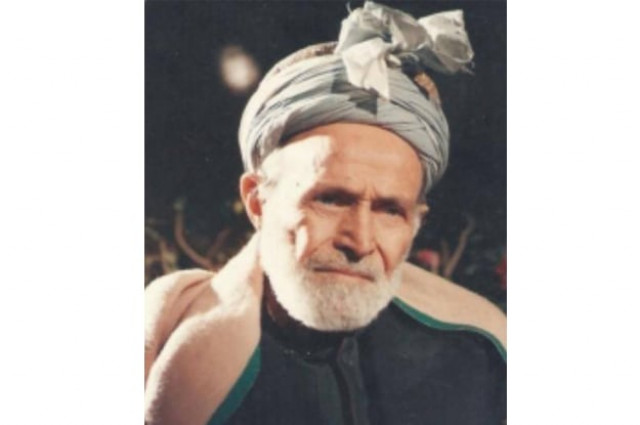Death anniversary: Hamza Baba’s message of unity lives on
Intellectuals from across province pay homage to renowned poet at UoP

Amir Hamza Khan Shinwari. PHOTO: FILE
A large number of poets, researchers and intellectuals gathered at Pashto Academy, University of Peshawar to pay tribute his life and literary achievements. The anniversary was organised by Pakhto Adabi Stori, a Pashto literary society in collaboration withPashto Academy.
Amir Hamza Khan died in 1994. Coincidentally, his only son Murad Shinwari – who was also a renowned poet – died on the same date in 2012. Hamza Baba’s mausoleum is situated in Landikotal, Khyber Agency and has been recently renovated by the government.
Body of work
Speaking on the occasion, poet Amjad Ali Khadim said Hamza Baba wrote Urdu poetry and travelogues in addition to his contribution to Pashto literature.
“His message for the unity of the nation is timeless,” he said. “It is still applicable.”
Participants said Hamza Baba’s work bridged the gap between the romantic poetry of the 17th century – which began with Khushal Khan Khattak – and Sufi poetry which is inherent in the works of Abdur Rahman Baba.
Hamza Baba revived these literary traditions and infused them with an element of mystic love. At the time, a number of poets – including Abdul Ghani Khan, Qalandar Mohmand, Dr Sherzaman Taizi – played an impressive role in reviving Pashto poetry. However, Hamza Baba’s work is fundamentally different from the work of these poets.
Core themes
The main theme of Hamza Baba’s poetry was the Pukhtun nationalism – an idea common among poets from the 17th century.
“Hamza Baba’s poetry stressed on Pukhtun nationalism and unity in the nation,” said Dr Iqbal Naseem Khattak, a renowned scholar of Pashto language and literature.
“After Hamza Baba, we were never able to find a poet of his stature.” He added Hamza Baba followed the classical poetry of the past, blended it with the modern spirit and introduced new ideas into
Pashto ghazals.
Published in The Express Tribune, February 19th, 2016.













COMMENTS
Comments are moderated and generally will be posted if they are on-topic and not abusive.
For more information, please see our Comments FAQ